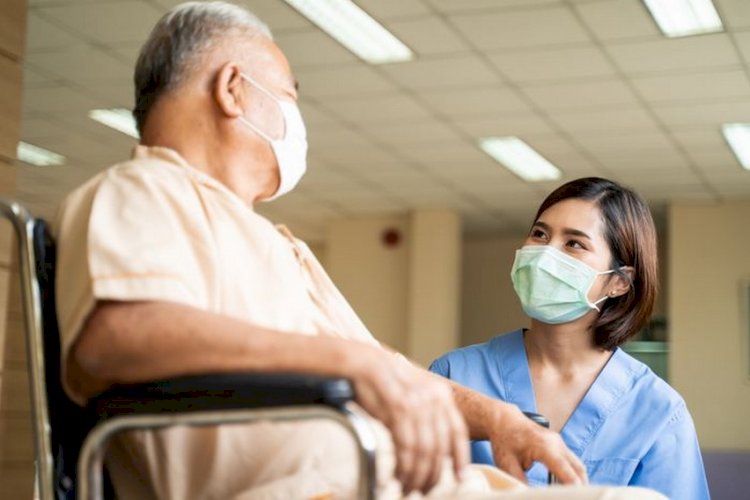WJtoday, Jakarta – Elderly community groups or become vulnerable groups during the Covid-19 Pandemic. According to the Indonesian Alzheimer’s Foundation, the elderly with dementia are at high risk of contracting the Corona virus.
Dementia is a disease that causes a decrease in memory and thinking. This condition has an impact on the lifestyle, social skills, and daily activities of the sufferer.
The types of dementia that mostly affect the elderly are Alzheimer’s disease and vascular dementia. In Indonesia, the term commonly known is senile.
But the elderly with dementia often do not understand the current pandemic situation. This group of people tends not to understand and it is difficult to comply. In addition, the ability to communicate in the elderly with dementia decreases and it is often difficult to express the symptoms they feel.
Therefore, it is important to recognize and pay attention to the specific symptoms when the elderly with dementia are affected. Changes in behavior or worsening symptoms of dementia should be watched out for as they could be an indication of a Covid-19 infection, stress, or worsening anxiety.
Not all elderly with Covid-19 show typical symptoms. However, according to the Indonesian Alzheimer’s Foundation, when elderly people with dementia are infected with this virus, pay attention to the following symptoms:
– Improved agitation
– Increased confusion
– Sudden sadness
– Cough
– Hard to breath
– Fever
– Repeatedly shaking from the cold
– Muscle ache
– Headache
– Sore throat
– Loss of the ability to taste and smell
If an elderly person with dementia is exposed to Covid-19, take the following steps to ensure that the condition is handled and does not transmit the virus to other householders, including:
– Limit the movement of the elderly around the house and minimize common spaces. Make sure common spaces such as kitchens, bathrooms are well ventilated.
– Limit the number of companions. Ideally, assign one person who is in good health and does not have a chronic disease to care for the elderly.
– Do not allow outsiders to come to visit until the elderly have completely recovered, do not show symptoms of Covid-19, and have completed isolation.
– Maintain hand hygiene by regularly washing hands before and after preparing food, before eating, after using the toilet, and whenever hands are visibly dirty.
– Medical masks should be provided to patients, worn by patients whenever possible, and changed daily or whenever they are wet and dirty.
– Elderly should practice respiratory hygiene. If you cough or sneeze, bring it to the inside of your elbow or use a tissue. Throw away the tissue immediately and wash your hands.
– Materials used to cover the mouth and nose should be disposed of or cleaned properly after use.
– Carers must wear a medical mask that covers the mouth and nose when in the same room with the elderly with dementia. Avoid touching the mask when in use.
– If the mask becomes wet or soiled with mucus or liquid, it should be replaced immediately.
– Remove the mask with the right technique, namely by removing the ties or straps, not touching the front of the mask. Throw it away immediately after use and then wash your hands.
– Avoid direct contact with the patient’s body fluids, especially fluids or mucus from the mouth or respiratory tract, and feces.
– Use disposable gloves and a mask when providing care.
Wash hands before and after wearing masks and gloves.***
– .


